Chemistry
Sign up for our newsletter
We summarize the week's scientific breakthroughs every Thursday.
-
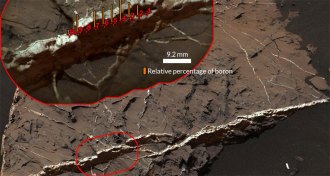 Planetary Science
Planetary ScienceFirst signs of boron on Mars hint at past groundwater, habitability
The Curiosity rover has found the first signs of boron on Mars, which could hint at past habitable groundwater.
-
 Planetary Science
Planetary ScienceFirst signs of boron on Mars hint at past groundwater, habitability
The Curiosity rover has found the first signs of boron on Mars, which could hint at past habitable groundwater.
-
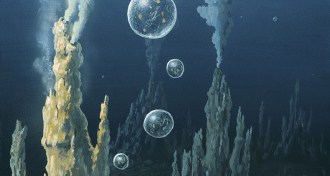 Life
LifeEarly RNA may have used isolation strategy to defeat useless mutants
Temporary barriers help RNA escape shorter, faster-replicating parasites
-
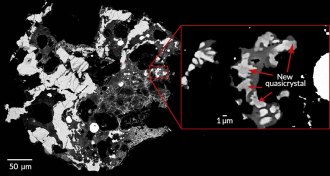 Earth
EarthThird kind of quasicrystal found in Russian meteorite
A new quasicrystal found inside a Russian meteorite is the first ever found in nature before being synthesized in the lab.
-
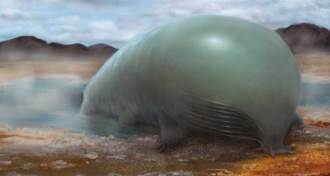 Chemistry
ChemistryEnzyme forges carbon-silicon bonds with a little human help
A few tweaks to an enzyme help it link carbon to silicon — a match not found in nature.
-
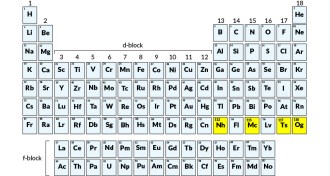 Chemistry
ChemistryNames for four new elements get seal of approval
The International Union of Pure and Applied Chemistry has approved the proposed names for the four elements added to the periodic table in December 2015.
-
 Chemistry
ChemistryNames for four new elements get seal of approval
The International Union of Pure and Applied Chemistry has approved the proposed names for the four elements added to the periodic table in December 2015.
-
 Climate
ClimateWanted: New ways to chill air conditioners, fridges
A new amendment to the Montreal Protocol will phase out potent greenhouse gases currently used in air conditioners and refrigerators, prompting a hunt for eco-friendly alternatives.
-
 Chemistry
ChemistryWater softeners get friendlier to health, environment
New technology softens water without adding sodium, which ends up in drinking water and contaminates the environment.
-
 Chemistry
ChemistryMolecules for making nanomachines snare chemistry Nobel
Nanochemists win Nobel prize for devising molecular machines
By Tina Hesman Saey and Thomas Sumner -
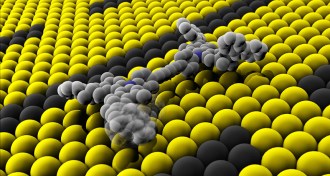 Chemistry
ChemistryMinuscule machines earn trio 2016 chemistry Nobel
The creators of mini machines including chains, axles and motors have earned the 2016 Nobel Prize in chemistry.
-
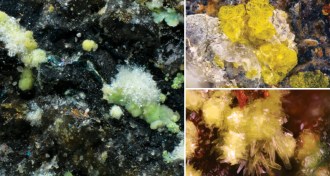 Planetary Science
Planetary ScienceRock hounds are on the hunt for new carbon minerals
The race is on to find about 140 predicted carbon-based minerals in locations around the world. Map included.
By Sid Perkins